Content from the Brookings Doha Center is now archived. In September 2021, after 14 years of impactful partnership, Brookings and the Brookings Doha Center announced that they were ending their affiliation. The Brookings Doha Center is now the Middle East Council on Global Affairs, a separate public policy institution based in Qatar.
As the coronavirus pandemic intensifies, it is becoming clear that no unified international response is in the works. Indeed, international organizations have been undermined by national actions, such as U.S. President Donald Trump’s shortsighted decision to suspend funding to the World Health Organization (WHO). In lieu of global coordination, the buck has been passed down to regional, national, local, and individual actors, resulting in varied, often conflicting, crisis responses.
The lack of an international response to the pandemic has motivated unlikely, but positive, acts of cooperation. In mid-April, for instance, all six members of the Gulf Cooperation Council (GCC), including Qatar, agreed to establish a network to protect food supplies. This was a surprising step, given that Saudi Arabia and the United Arab Emirates (UAE) have been blockading Qatar since 2017. It suggests that the Gulf states, faced with a formidable common enemy, have decided to (at least temporarily) let go of petty grievances for the sake of the greater good.
Moreover, the crisis provides further evidence that the United States has abandoned its traditional leadership role on the world stage, offering an opening for other players to move up in the global order. Other states, such as China, have moved to fill this power vacuum, as a number of analysts have already noted. However, the crisis also presents an opportunity for countries like those in the Gulf to step up as global leaders, in unprecedented ways.
Gulf states respond to the pandemic at home and abroad
GCC countries have already shown that they are capable of acting effectively to contain the health and economic impacts of the pandemic within their own borders, albeit with marked shortcomings when it comes to protecting migrant workers. They have taken aggressive steps to curb public gatherings, restrict travel, enact quarantine and testing procedures, and maintain essential services, while communicating frequently with the public. GCC governments have also initiated economic stimulus packages amounting to $97 billion, with the aim of protecting the private sector.
Gulf states have also provided substantial humanitarian aid to other countries during the crisis, sometimes stepping in when the United States has refused to do so. Qatar, Kuwait, Saudi Arabia, and the UAE began shipping medical supplies to China as early as February; in the months since, the direction of aid has reversed, with China repaying the favor. The UAE, Kuwait, and Qatar have offered aid to Iran, which was hit early and hard by the pandemic. In contrast, the United States has continued to impose sanctions against Iran, limiting the latter’s ability to import needed medicines and going against the recommendations of institutions like the United Nations and Human Rights Watch. Separately, Qatar has offered support to United Nations programs responding to the pandemic in Gaza. These same programs have faced severe budgetary pressures since the United States suspended funding in 2018 to the U.N. Relief and Works Agency for Palestine Refugees in the Near East (UNRWA).
GCC countries must look beyond their own national interests
Additionally, the coronavirus crisis has demonstrated that GCC countries can enact rapid change at the global level, though not always for the best. For instance, Saudi Arabia’s decision to engage in an oil price war with Russia at a time when global demand was slowing showed that it has the power to almost single-handedly tank global markets. After the kingdom slashed prices and ramped up production, Brent crude fell to its lowest in almost twenty years, approaching $20 per barrel. OPEC+ countries eventually agreed to cut production, but not before storage facilities had nearly filled and oil prices in the United States had dropped to less than zero for the first time ever.
The effect of Saudi Arabia’s actions should serve as a warning of what can happen if nations pit themselves against one another during this pandemic, each fighting for nothing more than its own self-interest. To avoid this fate, GCC countries should leverage their significant financial and political resources in solidarity with communities across the world, acting together to lead the global pandemic response. If successful, Gulf states could set themselves up to take charge of coordinating international responses to other pressing global challenges, such as climate change and nuclear proliferation.
How GCC states can lead the global response
So, do GCC states have the capacity to step up in the coming months as global leaders in responding to the coronavirus crisis? And, if so, how should their governments proceed? Beyond the obvious, important leadership role that GCC countries can play in stabilizing global energy markets, we offer the following four recommendations:
First, and perhaps most crucially, it will be necessary for all six GCC member states to work together toward the same goals. Aspiring global leaders must demonstrate that they can create alliances and collaborate with their neighbors. It is also in the national interest of GCC countries to work together to mitigate the economic impact of the pandemic and lower oil prices. Doing so will require more action along the lines of the recent food supply decision and, ideally, a suspension of the blockade against Qatar for the duration of the pandemic.
Second, GCC states should leverage the significant political capital they have accrued with the current U.S. administration to advocate for crucial policy shifts that support the efforts of international organizations. Encouraging the United States to continue funding the WHO and to moderate its sanctions on Iran would be a good start. By working with the United States in this way, GCC countries would not only build a reservoir of goodwill with international organizations, but also provide a significant boost to lower-income member states that rely on said organizations for technical and financial assistance during times of hardship.
Third, GCC states must step up to protect the world’s most vulnerable populations from the pandemic’s impact. On the one hand, Gulf countries should promote the cessation of conflict in areas where they are militarily engaged, such as Yemen and Libya. Individuals living in conflict-affected areas are clearly at much higher risk from the pandemic, which itself threatens to intensify and multiply conflicts. On the other hand, Gulf countries should provide better protection and support during the pandemic for their own migrant worker populations, who are already suffering disproportionately. By striving to protect vulnerable populations domestically and abroad, GCC states will demonstrate moral leadership, greatly strengthening their international standing.
Fourth, GCC states should continue to the best of their abilities to provide medical aid to countries in need, especially those with weaker economies and fewer resources. Although GCC countries are facing their own short- and long-term economic challenges, this has not prevented them in the past from generously offering aid and assistance to those in need. It is also in the best interest of richer countries to support poorer ones, for, until the virus is eradicated everywhere in the world, no country will be safe from its scourge.
The above points complement one another and can be pursued in tandem. By taking these actions, GCC states would not only benefit at the national and regional levels, but could also alter the global trajectory of the pandemic, while securing a key leadership role in an increasingly multipolar world.
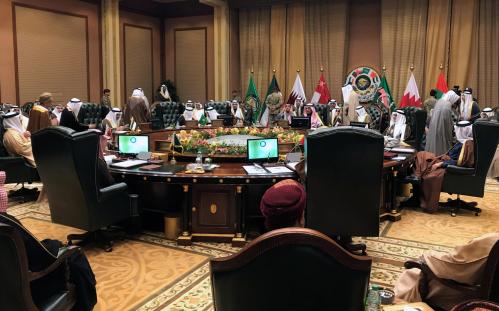
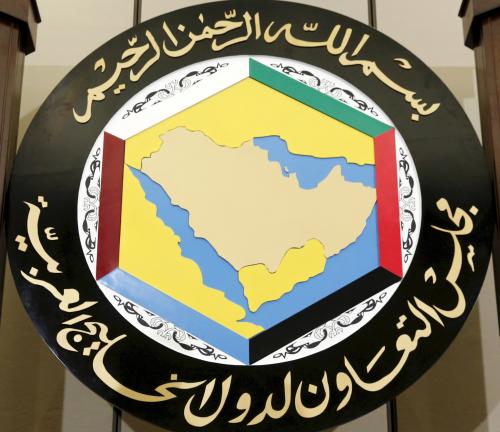
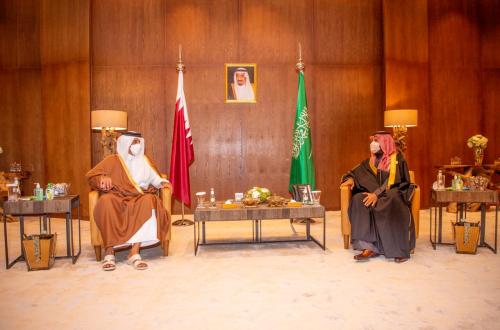
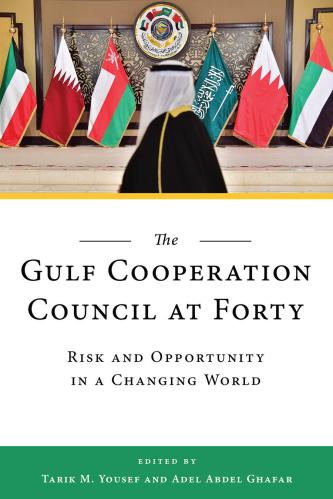

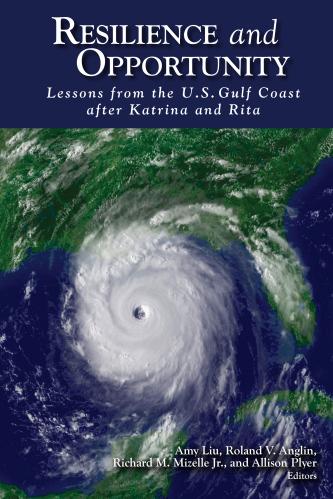




Commentary
Op-edHow Gulf states can lead the global COVID-19 response
April 30, 2020